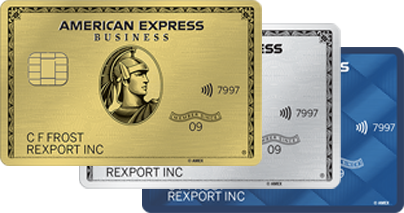
15 Questions to Ask Overseas Suppliers
By Karen Lynch | American Express® Freelance Contributor
6 Min Read | August 11, 2022
Summary
Every day seems to usher in another “new normal” in global sourcing.
International supply chains have been rattled in recent times by a succession of disruptions that are not only significant but long-lasting. You can hardly count them on three hands, including a pandemic, labor shortages, official trade restrictions, clogged ports business closings, surging inflation, extreme weather, scarce trucks, overflowing warehouses, and most recently, an uncertain outlook for economic growth.

It's all placing enormous pressure on U.S. companies’ cost of doing business and their reputation for on-time delivery of high-quality products and services. To adapt, some procurement teams have been rebalancing their sourcing strategies among global (offshore), regional (near-shore), and local (onshore) suppliers. Others have expanded from single to multiple sources for components and stock. Yet others have reversed course from “just-in-time” inventory management to stockpiling critical inventory.
In this world of change, there should be one constant, according to management experts: Keep a clear line of communications open with your vendors – especially internationally – and use it early and often.
There are basic questions a business should always ask overseas suppliers both before and after signing any contract, to choose the right supplier and then keep the partnership working smoothly. We recap those below. But this new environment of a constantly changing “normal” requires first reviewing your own situation and then focusing vendor discussions on higher-level risk management questions, which we address first.
Questions to Ask Yourself About Overseas Suppliers
Before quizzing overseas suppliers on how their local environments, capacities, resilience, and projections might be changing, procurement experts suggest asking yourself key questions to set the stage:[1]
- How is your own customer demand changing? Especially in turbulent times, demand should trump historical sales patterns when making supply chain decisions, so keep close tabs on customer demand or you’ll end up with excess – or insufficient – inventory. Retail sales are expected to grow 6% to 8% in 2022, for example. That’s down from 14% last year, according to the National Retail Federation (NRF), adding that “there is considerable uncertainty this year that NRF will continue to monitor closely.”[2]
- Do you have visibility across your supply chain? Communications are essential, whether automated in a digital supply chain, conducted in person-to-person conference calls, or (ideally) both. What’s going on in your supply chain and where are bottlenecks developing?
- How flexible is your sourcing? Single-source arrangements may have benefits such as volume pricing, but they can also create a single point of failure in your supply chain. Even sourcing from multiple suppliers in the same country or region may not be flexible enough to avoid local risks, exchange rate shocks, and other issues. Be sure, though, to weigh the benefits of adding new suppliers against the costs.
- Which of your suppliers might pose a risk? Do your homework before discussions with your suppliers, to ask informed questions – about possible risks in their country, market sector, finances, operations, staffing, and their own supply chains. You should also ask about their contingency and business continuity planning.
Risk Management Questions to Ask Overseas Suppliers
Buyers’ and sellers’ supply chain risks will vary by size, market sector, and other factors. And the term supplier is a broad one. A supplier, or vendor, might manufacture a product to your specification or sell you its raw materials, components, finished products, software, or services. Regardless, your company’s dependence on that supplier raises similar types of risks, which tend to increase with the complexity of cross-border logistics in global supply chains.
“Once you’ve identified the risks in your supply chain, you can use that information to address them by either diversifying your sources or stockpiling key materials or items,” writes Harvard Business School Professor Willy C. Shih.[3] Or, you could reduce the variety of products you make or sell.
But first you’ve got to pinpoint potential problems. Here are four risk-related questions to ask overseas suppliers:
- How flexible is your supplier’s own supply chain? You could be vulnerable if your supplier sources or produces a critical component in only one country, according to Prof. Shih. You should also ask about their inventory levels and safety stock.
- What’s their approach to communications? Speed is essential in global supply chains to identify and correct problems that risk stalling your business. Lead times tend to be longer when sourcing internationally, and there’s simply more that can go wrong. What’s called for are ongoing communications and progress reports. Is your supplier open to this? If so, establish performance indicators that both parties can track, combining automatic data feeds and shipment metrics with regular one-on-one performance reviews. Can you and your supplier view the same data in real time on a shared digital platform? Is there a responsive, day-to-day arrangement for contacts across time zones? A crisis communications strategy? Will language be a problem?
- How well does your supplier protect against cyberattacks? Supply chains are attractive targets to cybercriminals, who might first attack a “little fish” supplier to infiltrate a bigger buyer. High-profile ransomware attacks have lately shut down major supply chains. And, for instance, scammers often pose as vendors requesting payment, by taking over a supplier’s email account in what the FBI calls “one of the most financially damaging online crimes.”[4]
- What are your supplier’s environmental, social and governance (ESG) policies? Your business reputation could be on the line if your overseas supplier falls short of upholding ESG standards, which are today more important than ever to consumers, regulators, investors, and other key stakeholders.
Basic Questions to Ask Overseas Suppliers
While the newly elevated level of global risk should prompt the deeper discussion described above, that doesn’t mean it’s OK to ignore the standard questions that define supplier relationships. Here are basic questions to ask overseas suppliers:
- What’s the current lead time? Questions about shipping times have leapt to the top of the agenda. Average lead times for shipping production materials, for example, have climbed 45% in the past year to 97 days, according to a recent industry report.[5]
- Which payment method will be used? Typical methods for paying foreign suppliers include advance payment (shipment only after payment is received), open account arrangements based on forward contracts (shipment based on an agreement to pay a specified price at a future date), and letters of credit (where a bank guarantees payment for you).
- What currency will be used and how would any foreign exchange (FX) fluctuations be handled? FX risks can erode profits. Supply chain experts suggest establishing ground rules from the start, to avoid “win-lose” situations in which a supplier may seek to gain financially from currency volatility.
- How are returns managed? For the average retailer, 16% of sales resulted in merchandise returns last year, according to the NRF.[6] The cost of reverse logistics can be high, if proper arrangements aren’t in place to move returned goods back from the end user to the retailer, distributor, or manufacturer.
- What are the supplier’s quality standards and controls? Visiting overseas suppliers for inspections and supplier audits has been hindered by travel restrictions in recent years. In their place, you might request samples, research suppliers’ ratings, and integrate vendors as active participants in your company’s quality assurance program.
- What’s the price? Any discounts? Most trade experts suggest that price shouldn’t be your top consideration, but it’s still a key one. Are there discount programs for volume purchasing or annual contract renewals? Be sure to understand the total “landed cost,” including transportation, duties, taxes, and inventory on top of the product price.
- When does the ownership transfer occur? This might determine whether you or the supplier carries the costs above and the risk of loss for goods in transit.
- How will delays and lost shipments be handled? Contracts often include penalty clauses for delays (unless caused by uncontrollable events, such as natural disasters). Suppliers are also expected to replace lost and damaged goods, depending on the answer to question No. 11, and are often insured for such incidents.
- Which tariffs, taxes, or trade restrictions might apply? The rules of international trade are always evolving, which can impact costs and delivery times. Tariff hikes raise product prices. Inaccurate paperwork causes customs delays at the border.
- Has the vendor done business in the U.S. before? With companies like yours? It can help eliminate supply chain friction to have a supplier that understands U.S. product standards, trade rules, and logistics issues specific to your market segment.
- Can the supplier provide references? Learn straight from a customer’s mouth how the supplier has been to work with in recent years, both positively and negatively.

The Card your business deserves
From travel benefits to cash flow management, we've got a Card for you.






